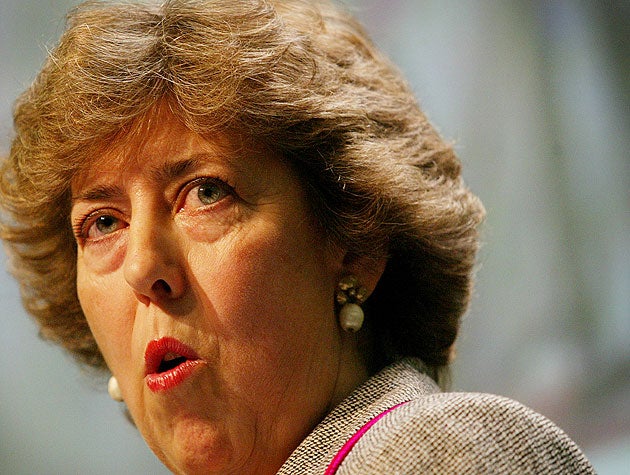Britain risks losing power to China by slashing foreign aid spending, a former MI5 chief has warned.
“Far from containing China, which is what we would all like to do if we had the power to do it, if we withdraw from the world, they can move in,” Eliza Manningham-Buller said in a wide-ranging interview on the Lord Speaker’s Corner podcast – drawing on her experience overseeing global health research after she left the intelligence service. .
Over the past decade, China has become a major player when it comes to global development – though not necessarily via aid – by investing in major infrastructure projects like bridges and roads. It also provides billions in finance.
Baroness Manningham-Buller suggested the country could gain more influence because it has a “strong economic base,” in a conversation with the lord speaker, Lord McFall of Alcluith during which she also warned the UK might already be at war with Russia.
Baroness Manningham-Buller headed the security service between 2002 and 2007, before taking leadership roles at Imperial College London and medical research foundation the Wellcome Trust.

Working for Wellcome, she recalled seeing the transformational impact of US aid programmes through the President’s Emergency Plan for Aids Relief (Pepfar), on HIV services.
“For Americans to stop all of that and for our cutting back on aid means that we leave space for your friendly Chinese diplomat ,” she said.
She said her answer to the question, “Do we risk losing soft power battles?” was “Yes”.
The UK is in the process of cutting its aid budget by around 40 per cent, in a move the government said was motivated by spending more on defence.
Meanwhile, in the US Donald Trump has axed the vast majority of foreign aid programmes calling them “wasteful”.

On Friday, the Supreme Court on Friday voted to allow Trump to freeze $4 billion in foreign aid payments which had already been allocated by lawmakers.
Baroness Manningham-Buller also drew on her experience with the anti-landmine charity HALO, which came to public attention during a famous visit to its work in Angola by Princess Diana in January 1997.
Its purpose is, “to make communities live again on the land and be sustainable and it employs and trains local people to do this work to de-mine,” she said. “It’s struggling at the moment because of cuts from donors.
“Soft power, whether it’s the BBC World Service, whether it’s aid, whether it’s de-mining, all contribute importantly to our influence in the world, as well as being of humanitarian importance,” she said.
This article was produced as part of The Independent’s Rethinking Global Aid project
